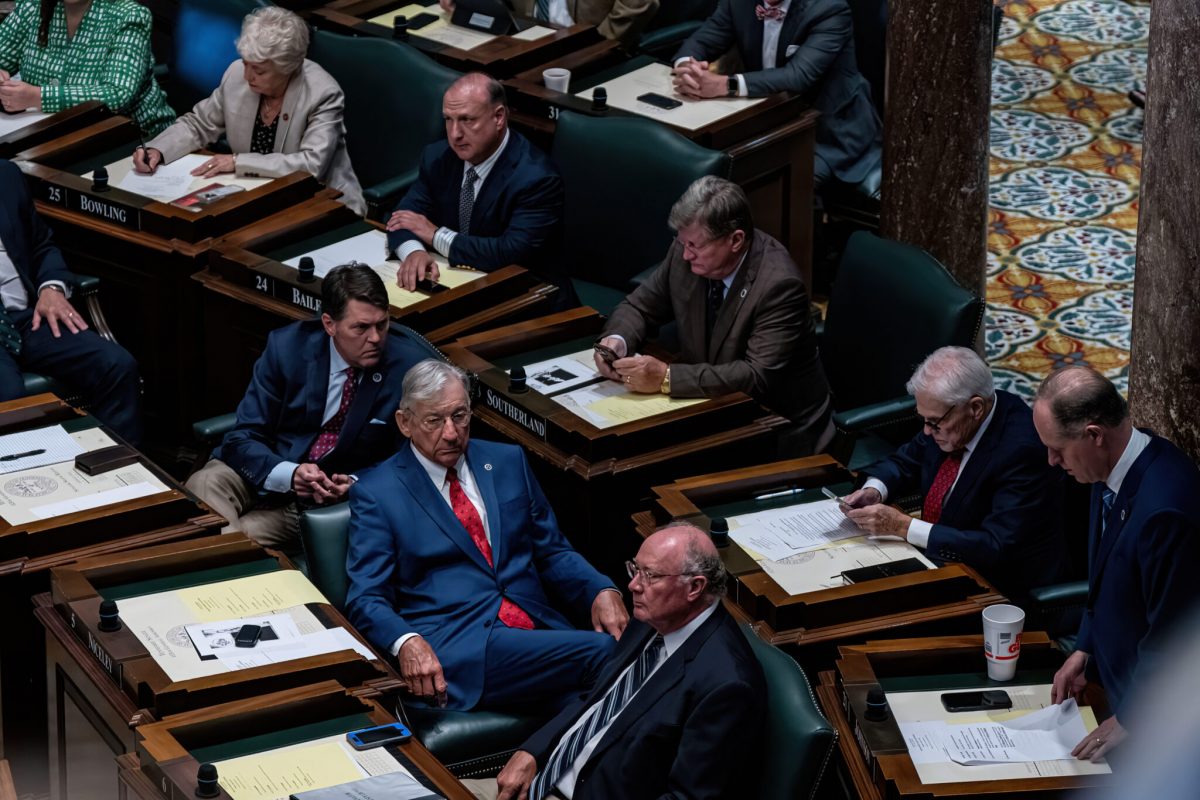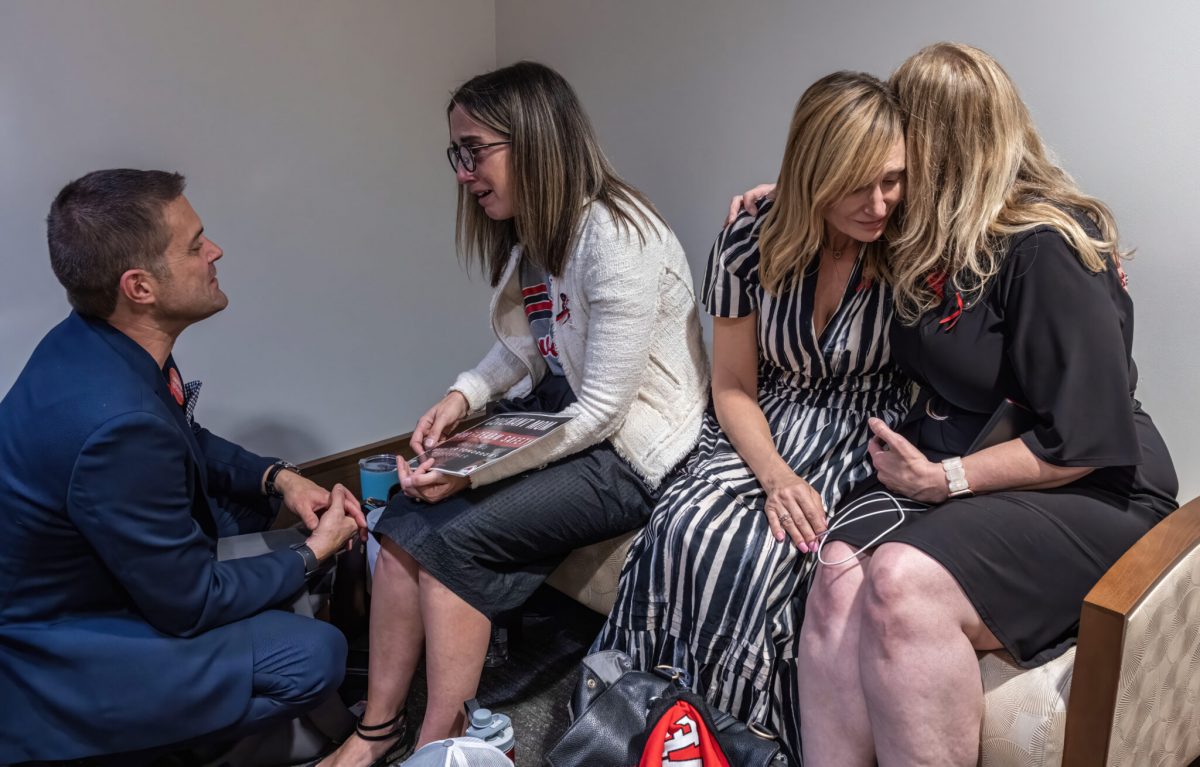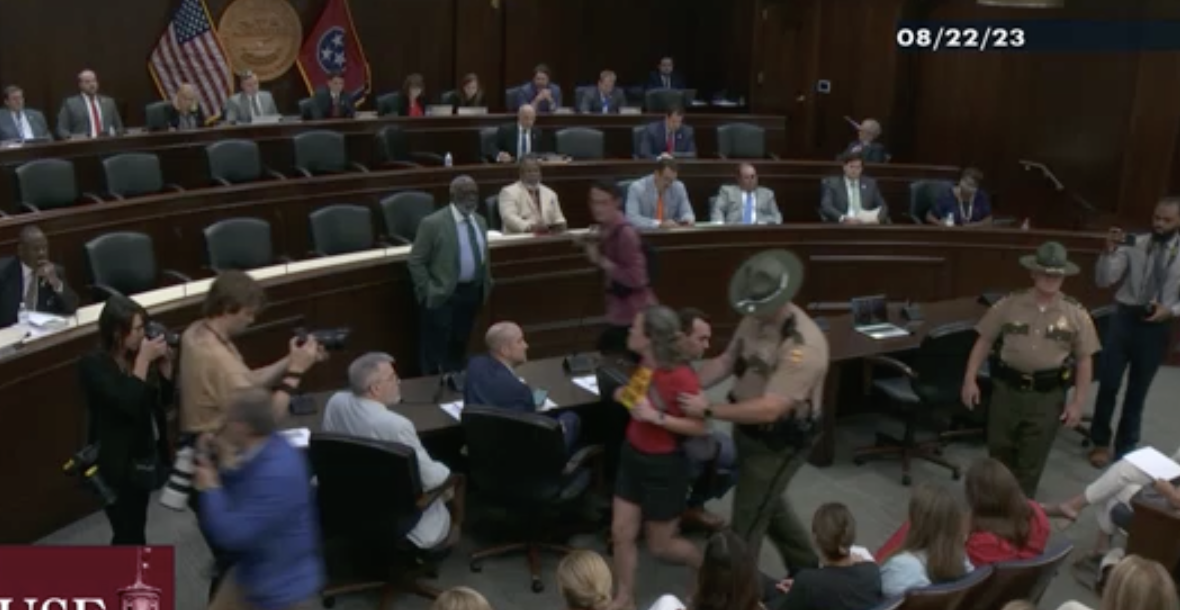When Tennessee House Speaker Cameron Sexton floated the idea in February of the state rejecting U.S. education dollars to free schools from federal rules and regulations, most supporters of public education hoped it was nothing more than political posturing.
But on Monday, Sexton and his counterpart in the Senate, Lt. Gov. Randy McNally, took the significant step of creating a legislative panel to conduct a comprehensive review of Sexton’s pitch.
The panel will look into the feasibility of doing without federal support for K-12 students and report back to legislative finance and education committees by January 9th. Currently, Tennessee receives up to $1.8 billion from the federal government for its schools, most of which supports low-income students, English language learners, and students with disabilities.
Federal funds typically make up about a tenth of a state’s K-12 budget.
No state has ever rejected federal funding for its students and schools. But Sexton has said that by rejecting the federal funds that Tennesseans help generate through their taxes, the state can eliminate the federal strings attached to those dollars, and make up the funding difference with state money.
McNally, in a statement Monday, cited the state’s “excellent financial position” while deeming Sexton’s proposal as “worthy subject of examination and study.”
Tennessee has been flush with cash in recent years, but its revenues have begun to flatten.
Last month, when the legislature approved $100 million in one-time funding during a special session on public safety, Sen. Bo Watson, a Hixson Republican who chairs his chamber’s finance committee, warned that Tennessee needs to tighten spending in the future. And last week, state Finance Commissioner Jim Bryson reported that state revenues for August — the first month of Tennessee’s fiscal year — were $39 million less than budget estimates.
Sen. Raumesh Akbari of Memphis, one of two Democrats named to the panel, said the trend should diminish any appetite to forgo federal cash.
“Most of us know how important federal funds are to our state budget, whether for our schools, roads, or health care,” Akbari told Chalkbeat. “My goal on this task force is to support the continued use of federal funding for K-12 education.”
“Besides,” she added, “Tennesseans pay federal taxes. Why should our tax dollars go to support schools in Georgia or California or New York, and not our own schools?”
Many Republicans, though, bristle at the federal oversight tied to receipt of federal education dollars.
Most notable are civil rights protections for students based on race, sex, and disability. Tennessee’s Republican-dominated government has challenged the spirit of those protections by passing laws in recent years to restrict classroom discussions and library books related to race, gender, and bias, as well as to prohibit transgender youth from playing girls sports and restrict which school bathrooms they can use.
“This working group will help provide a clearer picture of how much autonomy Tennessee truly has in educating our students,” Sexton said in a statement Monday.
A spokeswoman for Gov. Bill Lee said he looks forward to reviewing the panel’s findings. The governor “remains committed to working with the General Assembly to ensure all Tennessee students have access to a high-quality education, while pushing back on federal overreach,” said Elizabeth Johnson, Lee’s press secretary.
The speakers appointed the 10 members to the exploratory panel, five from each chamber:
• Sen. John Lundberg, R-Bristol (co-chair)
• Rep. Debra Moody, R-Covington (co-chair)
• Sen. Raumesh Akbari, D-Memphis
• Sen. Joey Hensley, R-Hohenwald
• Sen. Bill Powers, R-Clarksville
• Sen. Dawn White, R-Murfreesboro
• Rep. Ronnie Glynn, D-Clarksville
• Rep. Timothy Hill, R-Blountville
• Rep. John Ragan, R-Oak Ridge
• Rep. William Slater, R-Gallatin
In a September 22nd letter creating the joint working group, the speakers outlined four tasks:
• Identify the amount of federal funding the state, districts, and schools receive and the laws associated with accepting such funds
• Examine how the state, districts, and schools use or intend to use the funding, and whether there are conditions or requirements for accepting such funds
• Report on the feasibility of the state rejecting federal education funding
• Recommend a strategy on how to reject certain federal funding or how to eliminate unwanted restrictions placed on the state due to receiving the funding
Last month, the Sycamore Institute reported that Tennessee distributed $1.1 billion in federal funds to school districts across the state — or about 11 percent of total district revenues — in 2019-20. The nonpartisan think tank also calculated that each of Tennessee’s 142 school districts received between $314 and $2,500 per student in federal funds, accounting for 3 percent to 20 percent of each district’s total revenues.
The group’s report said school districts most reliant on federal dollars tend to be more rural, and have more low-income and disabled students, less capacity for local revenue, and lower test scores in English language arts.
Tennessee already ranks in the bottom fourth of states in spending per pupil, and eliminating a key funding source would have serious consequences, said Gini Pupo-Walker, executive director of The Education Trust in Tennessee.
“We would not only redirect Tennesseans’ federal tax dollars to other states in the country, but we would have to dip into our rainy day fund in order to maintain our current level of education funding, limiting our capacity to invest in our students in the future, particularly those most in need,” Pupo-Walker said.
A spokesperson for the U.S. Department of Education, which in February called Sexton’s proposal “political posturing,” said students need more — not fewer — resources to support academic recovery following the pandemic, as well as to address a crisis in youth mental health.
“Any elected leader in any state threatening to reject federal public education funds should have to answer to their local educators and parents in their community about the detrimental impact it would have on their community’s education system and their students’ futures,” the spokesperson said.
A statement from the Tennessee Disability Coalition said the group wants to work with the panel “as a resource in conveying the vital importance of federal education funding for students with disabilities.”
“As the past 50 years have shown us, these funds and associated regulations have dramatically improved outcomes for Tennessee students with disabilities and served to protect them from institutionalization, segregation, and marginalization,” the group said.
Editor’s note: This story has been updated to include a comment from the U.S. Department of Education.
Marta Aldrich is a senior correspondent and covers the statehouse for Chalkbeat Tennessee. Contact her at maldrich@chalkbeat.org.
Chalkbeat is a nonprofit news site covering educational change in public schools.









